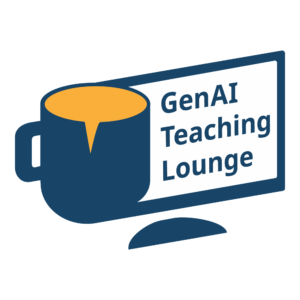
Register now!
Recordings and transcripts available from past meetings: B.C. Open Education Community (Playlist)

Happy Holidays! The BCcampus office will be closed and services will be reduced between December 24, 2025 and January 4, 2026. The office will reopen on January 5, 2026.
Throughout the holidays and beyond, we hope that you will remain connected with us through our newsletter or LinkedIn – we always love hearing from you!

About the Session
This FLO (Facilitating Learning Online) MicroCourse invites educators from any discipline to envision and frame their teaching in relation to climate emergency. Together, we will explore three practical models of climate change education emphasizing justice, hope, and decolonial perspectives: Climate-Kind Pedagogy, The Hope Wheel, and the Care-Know-Do Framework.
Through interactive videos, reflective discussions, and a live networking conversation, participants will consider how these models can inspire transformative learning in their unique teaching contexts. Participants will leave the course with concrete ideas for bringing climate conversations, action, and hopeful engagement into their classrooms.
By the end of the course, participants will be able to:
- Describe three climate education models and their core features.
- Assess how each model could be adapted for use in their own teaching.
- Create a personalized action plan for integrating climate-responsive teaching strategies into a course (i.e. an assignment, lessons, outcomes).
Course Logistics
Time commitment: 6-8 hours
Format: Asynchronous
While most of the learning will happen asynchronously, we will offer an optional synchronous session on Thursday, January 15, 2026, 2:00–3:00 p.m. PST.
Register Now!
This session will be recorded, archived, and shared with course registrants.
About the Facilitator
Lauren Anstey (she/her/hers) is an Educational Developer who works at College of the Rockies as a Teaching and Learning Specialist. Lauren was born on Treaty 29 Territory, where her ancestors of Irish, Belgian, and Scottish heritage were farmers for many generations. To her professional work, Lauren offers experience in curriculum design and authentic inquiry learning, holding a PhD in Curriculum Theory from Queen’s University. Recently, her research interests have been directed at how learning can be transformational for students in preparing for a rapidly changing future. Lauren lives in Ktunaxa ɁamakɁis in ʔa·kisk̓aqǂiʔit.
We’re excited to introduce the GenAI Teaching Lounge: an informal, virtual space where educators can gather over a hot drink to explore teaching ideas with Generative Artificial Intelligence (AI).
Curious about using AI tools to support assessment design? Wondering how to centralize student voices when integrating AI into coursework? Or simply want to share your own stories and tea with others? The Lounge is your space to ask questions, exchange ideas, and learn with colleagues.
No lectures, no recordings—just conversation, connection, and curiosity. Join us for a 45-minute drop-in session designed to generate practical takeaways and strengthen our teaching community.
Sessions
Sessions will be held from 2:00–2:45 p.m. PT:
- October 21, 2025
- November 25, 2025
- January 13, 2026
- February 17, 2026
- March 10, 2026
Register Now!
This session will not be recorded.
Hosts
Gwen Nguyen (she/her) is a Learning + Teaching Advisor at BCcampus supporting the adaptation and evolution of teaching and learning practices in post-secondary education through collaboration, innovation, and digital technologies. Gwen worked as a learning experience designer at the University of Victoria (UVic), supporting educators with developing and delivering face-to-face, hybrid and online courses. She has also worked as a university lecturer and researcher at UVic and the Kanazawa Institute of Technology in Japan. Gwen holds a PhD in education studies and an MA in applied linguistics. Recently, Gwen has cultivated a keen interest in pedagogical strategies that ethically and creatively incorporate AI into teaching and learning.
Britt Dzioba (she/her) is a Learning + Teaching Advisor at BCcampus where she works to support educators in developing their digital skills through resource development. As a neurodivergent educator, she is passionate about helping faculty create more inclusive learning environments that support neurodivergent students. Britt holds a Master of Education from the University of British Columbia, specializing in adult learning. Her graduate research focused on digital literacy education in community-based programs.
Helena Prins (she/her) is a Learning + Teaching Advisor at BCcampus, where she coordinates the Facilitating Learning Online (FLO) portfolio. She began her career as a high school teacher in South Africa. Over the past 20 years, she has taught students of all ages and stages on four continents. A golden thread throughout her career has been breaking down barriers to learning. Prior to joining BCcampus in 2020, she worked as a career learning and development advisor at Royal Roads University.
Event Description
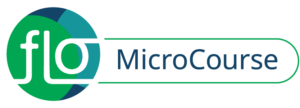
How can we facilitate maximally accessible online learning environments while recognizing that some learners will experience access barriers where other learners experience access supports? Access friction can pose challenges to implementing access and demonstrates there is no ‘one size fits all’ approach (Glossary, Access Anthology: Reflections on Disability Art and Culture, Gallery TPW, 2023, p. 66).
During this Facilitating Learning Online (FLO) MicroCourse, learners will have the opportunity to explore effective methods for navigating what some disability communities call access friction. Through problem-based learning, participants will develop inclusive, non-hierarchical ways of anticipating, navigating, and responding to access friction by drafting statements for their course syllabi that detail their planned approach.
Participants also will review each other’s draft statements, allowing them to:
- Identify frequently encountered sources of access friction (Example: cameras on to facilitate lip-reading versus cameras off to support mental health needs)
- Craft student-centered approaches to navigating access friction in online environments
- Provide constructive peer review for syllabus accessibility statements using online asynchronous annotation tools
Learning Outcomes
By the end of the course, participants will be able to:
- Recognize what constitutes access friction in online learning
- Practice effective methods for mitigating access friction in flexible and inclusive ways
Course Logistics
Time commitment: Six to eight hours
Format: Asynchronous
While most of the learning will happen asynchronously, we will offer an optional synchronous session on Friday, January 23, 2026, 10:00–11:00 a.m. PST.
Register Now!
This session will be recorded, archived, and shared with course registrants.
About the Facilitator
Stefan Sunandan Honisch (he/him) is a disabled researcher, educator, and musician. He is a sessional instructor in Theatre Studies, and a Scholar-in-Residence at St. John’s College, on the traditional, ancestral, and unceded lands of the Musqueam Nation, on which the University of British Columbia’s Vancouver campus is situated. Honisch has also previously worked for the B.C. Public Service Agency’s Learning Centre.
About the Session
Prior Learning Assessment and Recognition (PLAR) is a process for evaluating skill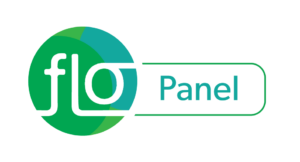 s and knowledge gained through work, life experience, and professional training. As more B.C. institutions explore flexible and learner-centred approaches, PLAR is emerging as an essential strategy for supporting student mobility, reducing barriers, and honouring diverse learning journeys. This panel brings together leading practitioners from across the B.C. post-secondary sector to share how their institutions are implementing PLAR, what they’ve learned, and why expanding PLAR pathways matters now more than ever.
s and knowledge gained through work, life experience, and professional training. As more B.C. institutions explore flexible and learner-centred approaches, PLAR is emerging as an essential strategy for supporting student mobility, reducing barriers, and honouring diverse learning journeys. This panel brings together leading practitioners from across the B.C. post-secondary sector to share how their institutions are implementing PLAR, what they’ve learned, and why expanding PLAR pathways matters now more than ever.
Moderated by Helena Prins, an advisor on the BCcampus Learning and Teaching team, this session will be an engaging and practical conversation for faculty, administrators, student-service professionals, and anyone interested in equity-informed innovation. Attendees will leave with a deeper understanding of PLAR’s value, examples of effective models across B.C., and inspiration for strengthening or developing PLAR pathways within their own institutions.
Register Now!
This session may be recorded, archived, and shared after the event.
About the Facilitators
Justine Arsenault is an advocate and practitioner for PLAR at the British Columbia Institute of Technology (BCIT), where she leads the Experience-Based Placement initiative. She collaborates with programs to create flexible pathways that validate the knowledge, skills, and experiences of adult learners, supporting credential completion and lifelong learning. Justine also oversees the BCIT Legion Military Skills Conversion Program, providing Canadian Armed Forces members with prior learning assessments, career transition, and academic support. Beyond her role at BCIT, she serves as co-chair of the B.C. Prior Learning Action Network (BCPLAN), collaborating with PLAR experts and champions to expand access to credentials and employment through informed recognition of prior learning.
Lisa Middleton has worked in post-secondary student services for over 20 years and has served as Associate Registrar at Vancouver Community College, Langara College and the Justice Institute of British Columbia (JIBC). At JIBC Lisa is responsible for admissions, student records and graduation, and contributes to academic governance committees. Lisa spearheaded the implementation of the professional training transfer credit pathway at JIBC as students with backgrounds in law enforcement, the military and public safety professions benefit from having their on-the-job training recognized academically.
Susan Forseille is Director of PLAR and Strategic Partnerships at Thompson Rivers University (TRU). She holds a BA from Simon Fraser University, an MA from TRU, and is completing her PhD at the University of Leicester. Her research focuses on career development, experiential learning, and PLAR.
Amanda Roberts is an accomplished RPL (Recognition of Prior Learning) and PLAR practitioner, and she is serving as manager of PLAR at the University of the Fraser Valley. She is dedicated to establishing clear governance and supportive policies that create alternative pathways for learners. Amanda’s work strengthens institutional capacity by expanding access and creating pathways enabling learners to progress efficiently toward achieving their goals. Her servant leadership is demonstrated through mentorship of staff, faculty, and learners, as well as her contribution on committees, provincial councils, and national boards.
About the Session
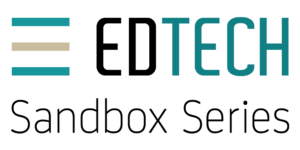
This session will explore the design and use of CITE GPT, a custom AI (Artificial Intelligence) chatbot created as a project in the University of British Columbia (UBC) Master of Educational Technology ETEC 511 class, to support students and educators with academic writing, citation formatting, and ethical information use in a reflexive way. The aim of this session is to demystify the design process, showing our successes and failures, which may lead to participants being better informed or trying this skill themselves.
Developed using OpenAI’s custom GPT framework and grounded in the principles of reflexivity, digital literacy, and educational usability, CITE GPT serves as a model for how AI can be thoughtfully embedded into academic practice.
Participants will be led through the coding process of creating a chatbot, engage in hands-on experimentation with the chatbot, be encouraged to make a chatbot of their own, and explore how the system-level prompt and knowledge base can shape user experience, all while reflecting on how AI can support, not shortcut, learning. This is done by emphasizing critical thinking, ethical engagement with technology, and student agency.
Together, we’ll reflect on how to use AI tools responsibly in our teaching and help students develop agency, not dependency. By the end, participants will leave with a concrete sense of how to evaluate, adapt, or build their own tools to support academic success.

Register Now!
This session may be recorded, archived, and shared after the event.
About the Facilitator
Amanda Robins is an educator, instructional designer, and MEd candidate at the University of British Columbia, specializing in educational technology. With over 20 years’ experience teaching English for academic purposes at the college level at both Langara College and Simon Fraser University, she brings a deep understanding of pedagogy, digital learning, and accessibility. Her recent work explores the ethical integration of AI in the classroom. Amanda has led workshops for educators on AI and assessment for B.C. TEAL and UVic ProD days, and recently organized workshops for a digital literacy teaching exchange in China.
About the Series
Discover the BCcampus EdTech Sandbox Series!
In these 90-minute workshops, expert leaders will introduce and demonstrate cutting-edge, open, and free, or low-cost educational technology tools aligned with the B.C. Post-Secondary Digital Literacy Framework. Participants will experiment with tools, work with fellow educators to review features of the tools, gain insights into teaching activities, and discover ways to integrate these tools into courses.
Focus Areas
- The AI Sandbox: a space dedicated to experimenting with, and reviewing, artificial intelligence tools and applications in educational settings.
- Other Learning Technologies: a space to explore, experiment, and review emerging learning technologies beyond AI, highlighting their potential impacts and practical applications.
EdTech Sandbox Series Sessions
- September 10, 2025 – Choose Your Own Adventure! Dynamic Branching Scenarios and Game Maps With H5P and AI Tools
- October 8, 2025 – The Intelligent Notebook: Become a Knowledge Expert With NotebookLM
- October 17, 2025 – [Special EdTech Sandbox] Remote Proctoring Through an Ethical Lens: the Case Against Surveillance
- November 26, 2025 – Claude vs. ChatGPT: Choosing the Right AI for the Job
- January 21, 2025 – Build Your Own Teaching Bot: My Story of Creating CITE GPT as a Teaching Tool
- February 18, 2025 – Re-imagining the Past: Deepfake as a Tool for Creative Storytelling and Visual Literacy

The British Columbia Open Education Community (BCOEC) welcomes members from the post-secondary sector in British Columbia and the Yukon. This community convenes monthly in virtual gatherings, fostering an environment for sharing insights, providing support, and engaging in discussions about the challenges, best practices, and current issues within open education.
Register now!
Recordings and transcripts available from past meetings: B.C. Open Education Community (Playlist)

Session Description
Are you familiar with the Universal Design for Learning (UDL) framework and trying out some ideas? Are you interested in accessible pedagogy? Interested in upping your UDL game? Join us for ideas on extending your UDL-based teaching practices using the new UDL 3.0 guidelines.
Register Now!
This session may be recorded, archived, and shared after the event.
About the Facilitator
Your facilitator for this session is Dr. Seanna Takacs.
Seanna is Practice Lead in Accessibility Services at KPU. She consults on UDL and accessible pedagogy for post-secondary institutions in British Columbia and is Co-chair for the Accessibility and Inclusion Community of Practice for Canadian Association of College & University Student Services (CACUSS).
2025-26 Accessibility Bites Series
- Accessibility Bites: Introduction to Web Accessibility, August 28, 2025
- Accessibility Bites: Supporting Post-Secondary Students with ADHD, September 25, 2025
- Accessibility Bites: Let’s Talk about Learning Disabilities, October 30, 2025
- Accessibility Bites: The Gift of Dyslexia, November 27, 2025
- Accessibility Bites: Access Friction, December 11, 2025
- Accessibility Bites: UDL 3.0 in Practice, January 29, 2026
- Accessibility Bites: An Indigenous Lens on Disability Rights, February 26, 2026
For recordings and resources from previous Accessibility Bites workshops, visit the Accessibility Bites Pressbook.
About the Session
Join us for an exciting Facilitating Learning Online (FLO) session about a news literacy framework for educators and students. In these information-challenged times, this workshop will introduce the concept and benefits of including news literacy (e.g. Ashley, 2020) as a crucial element in the post-secondary teaching and learning environment. We will explore the news literacy framework, discuss why it is essential to 21st-century post-secondary learning and teaching, and provide an orientation to a new open education resource, a news literacy toolkit.
The session will be of interest to professors, librarians, and other educators who support student learning. It aims to give participants the knowledge and skills to better understand and engage with today’s complex media environment. By the end of the workshop, participants will: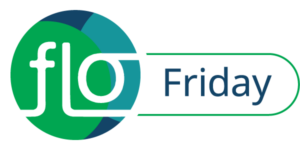
- Be able to define and explain the concept of news literacy and its importance in the current media landscape
- Understand how the presence of bias in news reporting affects the representation of events
- Learn strategies to curate a diverse and balanced news diet, avoiding echo chambers and ensuring exposure to multiple perspectives.
Register Now!
This session may be recorded, archived, and shared after the event.
About the Facilitator
Justin Harrison has over 20 years’ professional experience as an academic research librarian and holds the position of Engagement & Learning Librarian at the University of Victoria Libraries. He is also a PhD candidate in the Faculty of Education at the University of Victoria, focusing on media literacy, news literacy, and their intersections with civic engagement and political polarization.

